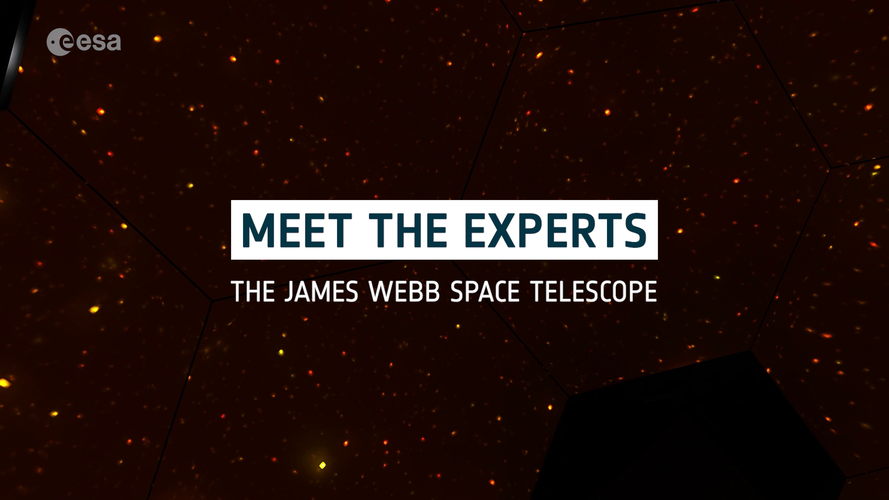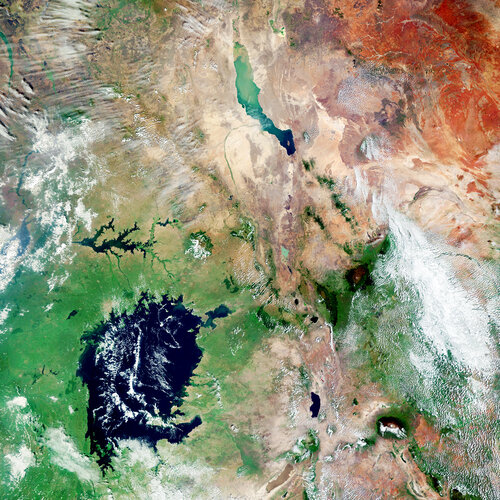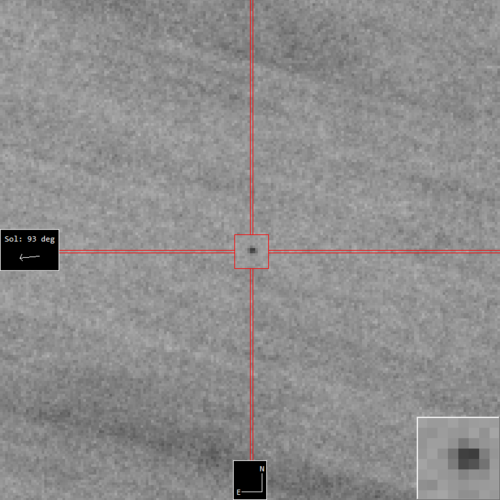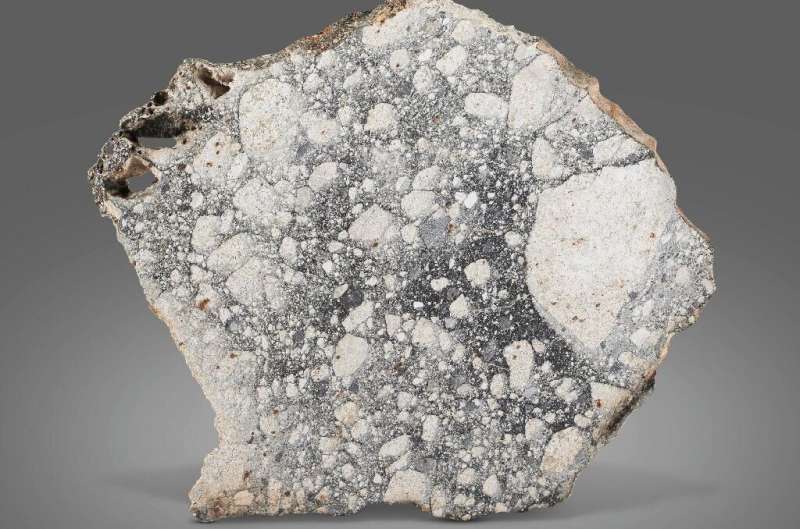
Copernical Team
Meet the Experts: The James Webb Space Telescope
 Video:
00:12:24
Video:
00:12:24
Are you curious to know how a telescope works? Join ESA astronomer Giovanna Giardino as she gives an insight into the inner workings of the world’s largest telescope in space, the extraordinary James Webb Space Telescope.
Find more episodes in the Meet the Experts series here.
Severe heatwaves putting lakes in hot water

The rise and fall of the riskiest asteroid in a decade

Dog kennel hit by meteorite sells at auction

A Christie's auction of rare meteorites Wednesday sold a rock from space that narrowly missed a German Shepherd when it smashed into his kennel in Costa Rica.
But the offer of the third-largest piece of Mars on Earth failed to make an impact at the auction house's annual sale of unusual meteorites.
The buyer paid $21,420 for the three-by-1.5 inch (eight-by-four centimeter) carbonaceous chondrite stone that landed in the garden of dog Roky's owner's home in Aguas Zarcas in April 2019.
The wood and tin doghouse itself, complete with a seven-inch hole marking where the meteorite punctured the roof, sold separately for $44,100, Christie's said.
That was much less than the pre-sale estimate of between $200,000 and $300,000.
A bidder paid $189,000 for a chunk of lunar rock that was discovered in Morocco in 2007, below pre-sale estimates of up to $300,000.
Another slice of the Moon—found in the Sahara desert in Mauritania—fetched $69,300 during the two-week online sale that ended Wednesday.
Is Marscrete the answer to building on Mars?

How can we build on Mars? A casual chat with a geologist led a University of Canterbury (UC) engineering academic and his team to spend years researching how to build on Mars. It all started with Associate Professor Allan Scott and Geology Professor Chris Oze (Occidental College) pondering what materials were available on Mars to make concrete or "Marscrete."
Earthly concrete is made with Portland cement, which is produced by heating limestone to drive off the CO2. Cement, the main binder, is mixed with sand, stone, and water to create concrete.
But the pressing question is: What is available on Mars to bind the materials of Marscrete together?
"Unfortunately, on Mars there is not a lot of limestone so we are looking at alternative ways to find some sort of binder system," says Associate Professor Allan Scott.
New power sources
 In the mid-1990s, a few energy activists in Massachusetts had a vision: What if citizens had choice about the energy they consumed? Instead of being force-fed electricity sources selected by a utility company, what if cities, towns, and groups of individuals could purchase power that was cleaner and cheaper?
The small group of activists - including a journalist, the head of a small nonprof
In the mid-1990s, a few energy activists in Massachusetts had a vision: What if citizens had choice about the energy they consumed? Instead of being force-fed electricity sources selected by a utility company, what if cities, towns, and groups of individuals could purchase power that was cleaner and cheaper?
The small group of activists - including a journalist, the head of a small nonprof Northrop Grumman awarded US Space Force contract for deep-space advanced radar
 Northrop Grumman Corporation has been awarded a $341 million contract by the U.S. Space Force (USSF) Space Systems Command (SSC) to develop, test and deliver a Deep-Space Advanced Radar Capability (DARC) in support of its Space Domain Awareness mission.
"The DARC program will field a resilient ground-based radar providing our nation with significantly enhanced space domain awareness for ge
Northrop Grumman Corporation has been awarded a $341 million contract by the U.S. Space Force (USSF) Space Systems Command (SSC) to develop, test and deliver a Deep-Space Advanced Radar Capability (DARC) in support of its Space Domain Awareness mission.
"The DARC program will field a resilient ground-based radar providing our nation with significantly enhanced space domain awareness for ge Robotic cubes shapeshift in outer space
 If faced with the choice of sending a swarm of full-sized, distinct robots to space, or a large crew of smaller robotic modules, you might want to enlist the latter. Modular robots, like those depicted in films such as "Big Hero 6," hold a special type of promise for their self-assembling and reconfiguring abilities. But for all of the ambitious desire for fast, reliable deployment in domains ex
If faced with the choice of sending a swarm of full-sized, distinct robots to space, or a large crew of smaller robotic modules, you might want to enlist the latter. Modular robots, like those depicted in films such as "Big Hero 6," hold a special type of promise for their self-assembling and reconfiguring abilities. But for all of the ambitious desire for fast, reliable deployment in domains ex SpaceX to launch IoT tech demo satellites for Plan-S
 Plan-S Satellite and Space Technologies, a Turkish provider of end-to-end satellite solutions for global IoT services, have signed a series of agreements to launch three IoT tech demo satellites onboard SpaceX's Falcon 9 via Exolaunch, a global leader in launch, in-space logistics and deployment services for small satellites. The satellites being built by Plan-S will be launched in the second ha
Plan-S Satellite and Space Technologies, a Turkish provider of end-to-end satellite solutions for global IoT services, have signed a series of agreements to launch three IoT tech demo satellites onboard SpaceX's Falcon 9 via Exolaunch, a global leader in launch, in-space logistics and deployment services for small satellites. The satellites being built by Plan-S will be launched in the second ha Sol 3395: Last Chance for Contact
 Before the science team says "OK TO GO!," today's plan involves getting one of the last looks at the rocks right below the Greenheugh Pediment, some observations at the contact between them, and some higher up on Gediz-Vallis Ridge.
The rover will collect two APXS measurements on "Galdenoch," one a brushed location and another offset from it, including some MAHLI images (see image) to docu
Before the science team says "OK TO GO!," today's plan involves getting one of the last looks at the rocks right below the Greenheugh Pediment, some observations at the contact between them, and some higher up on Gediz-Vallis Ridge.
The rover will collect two APXS measurements on "Galdenoch," one a brushed location and another offset from it, including some MAHLI images (see image) to docu 



































